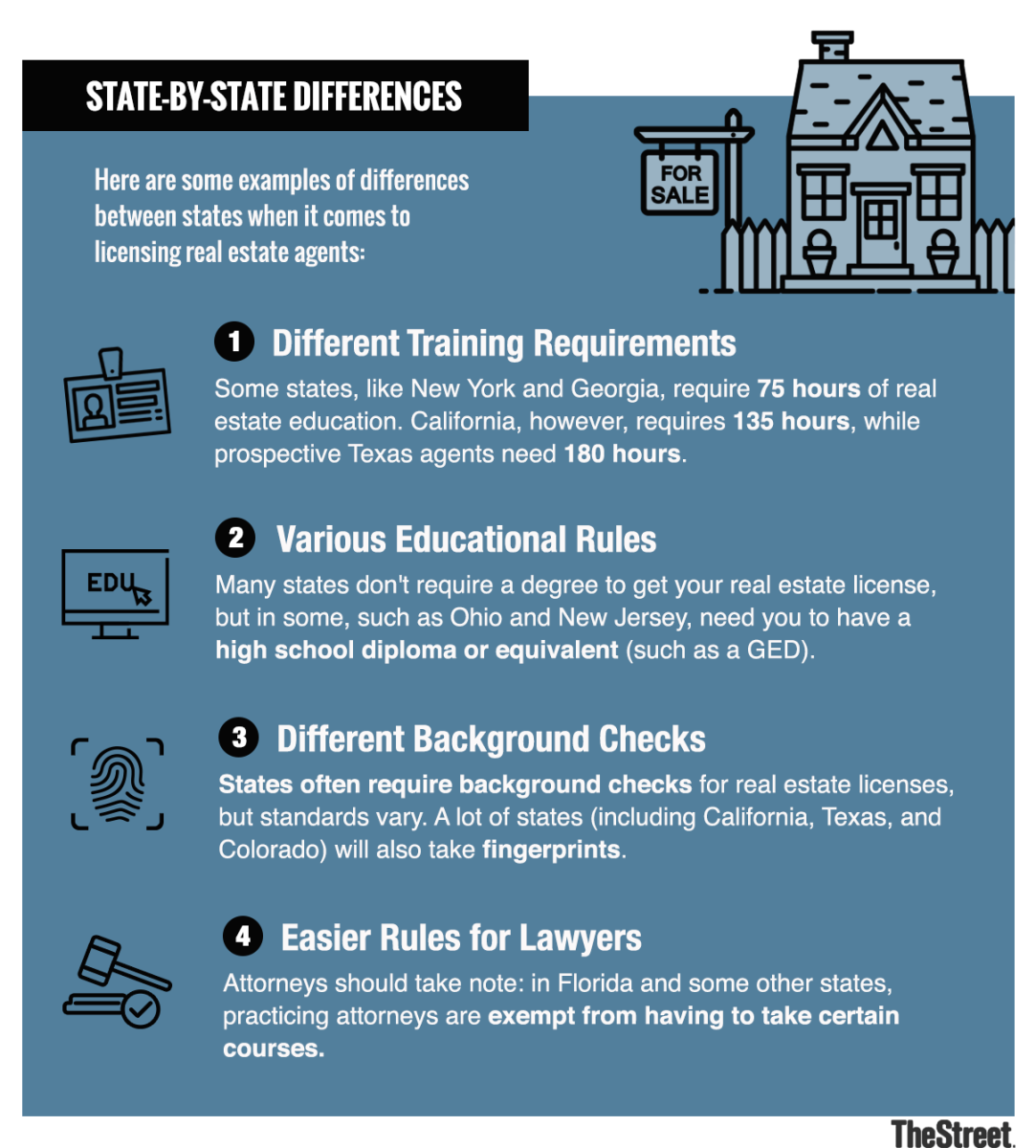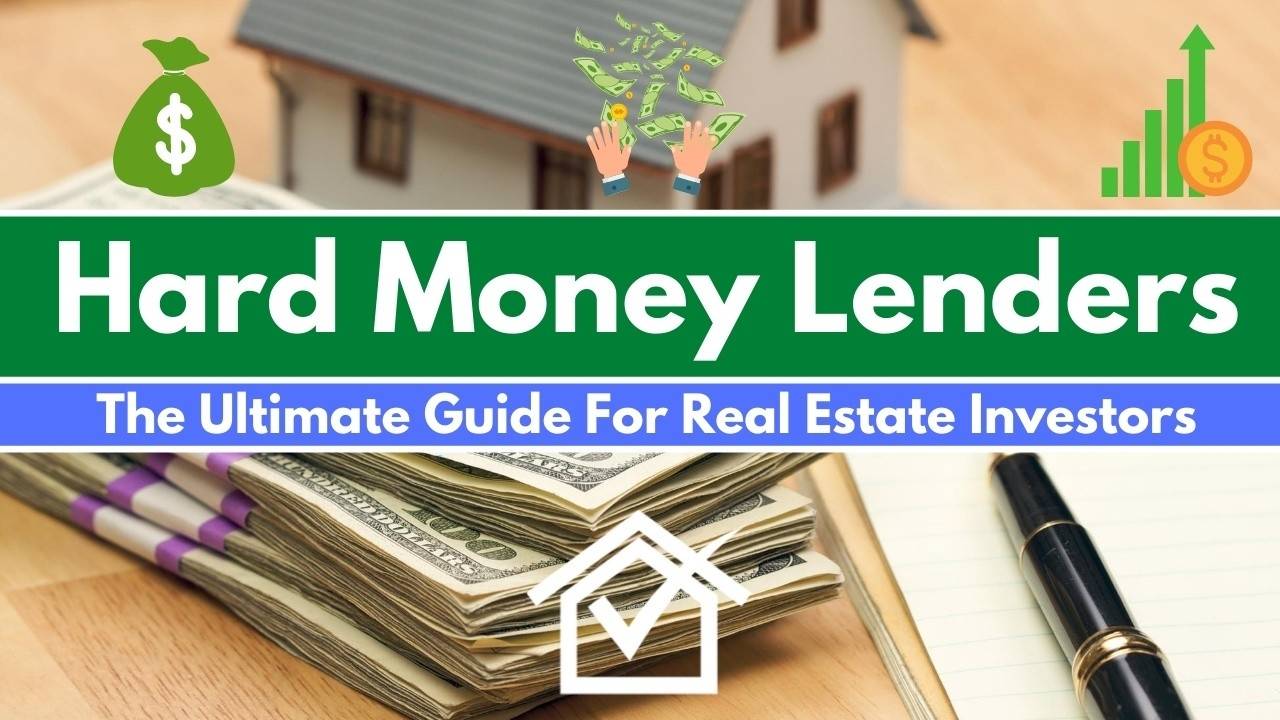
To pursue a career in real property, your first step should be to obtain a license. There are many costs associated with a license, including the exam fee and continuing education classes. Costs for a real property license vary by state. It is important that you do your research so you can determine if the license cost is reasonable. This will help you to start your new career with the right tools.
Before you apply, you should ensure that all requirements are met. Some states have requirements that are more stringent than others. California has several requirements. To get your license, it is necessary to complete a background check.
If you want to become a licensed real estate agent in New York, you will need to undergo a background check, a proctored exam, and an education course. The total cost to obtain a license will vary depending on the type. Online courses and in-person classes are both options. However, it is often less expensive to attend classes than to take them online.

You will need to pay a 65 dollar application fee in order to obtain your New York Real Estate License. This fee will cover background checks and fingerprinting. A $15 state exam fee will be required when you apply.
After receiving your license, you will need to renew it every 2 years. You will need two hours of training related to agency during the renewal period. During this time, you will need to complete a background check and an E&O insurance policy. Once your renewal is complete you can start work.
You have many options for paying for your real-estate license. These include personal checks, cash, and credit cards. Your state's cost for your license will differ, as will the service provider. It usually takes between 6-8 weeks for an application to be processed. It can take longer.
An average cost for a New York Real Estate License is $200 to $700. Although the total cost is quite affordable, it can prove difficult to determine how much. One factor to consider is how long you plan on spending studying. The more you study, you are more likely to pass the licensing examination. To prepare for the exam, you might find it beneficial to enroll in an 8-hour crash class.

It's an exciting career. However, you will need to be patient. Most people will need to take the exam at least twice. Failing to pass the exam can result in you losing your license. The New York Department of Real Estate offers a retake option through their eAccessNY account.
FAQ
Is it possible to quickly sell a house?
If you plan to move out of your current residence within the next few months, it may be possible to sell your house quickly. But there are some important things you need to know before selling your house. First, you will need to find a buyer. Second, you will need to negotiate a deal. Second, prepare your property for sale. Third, you need to advertise your property. You must also accept any offers that are made to you.
How do I calculate my interest rate?
Interest rates change daily based on market conditions. The average interest rates for the last week were 4.39%. Divide the length of your loan by the interest rates to calculate your interest rate. If you finance $200,000 for 20 years at 5% annually, your interest rate would be 0.05 x 20 1.1%. This equals ten basis point.
How many times can I refinance my mortgage?
It depends on whether you're refinancing with another lender, or using a broker to help you find a mortgage. Refinances are usually allowed once every five years in both cases.
What are the 3 most important considerations when buying a property?
The three main factors in any home purchase are location, price, size. Location is the location you choose to live. Price refers how much you're willing or able to pay to purchase the property. Size refers to how much space you need.
Can I buy a house in my own money?
Yes! Yes. These programs include government-backed loans (FHA), VA loans, USDA loans, and conventional mortgages. More information is available on our website.
How much money do I need to save before buying a home?
It depends on the length of your stay. Start saving now if your goal is to remain there for at least five more years. But if you are planning to move after just two years, then you don't have to worry too much about it.
What are the advantages of a fixed rate mortgage?
A fixed-rate mortgage locks in your interest rate for the term of the loan. You won't need to worry about rising interest rates. Fixed-rate loan payments have lower interest rates because they are fixed for a certain term.
Statistics
- The FHA sets its desirable debt-to-income ratio at 43%. (fortunebuilders.com)
- Over the past year, mortgage rates have hovered between 3.9 and 4.5 percent—a less significant increase. (fortunebuilders.com)
- Based on your credit scores and other financial details, your lender offers you a 3.5% interest rate on loan. (investopedia.com)
- When it came to buying a home in 2015, experts predicted that mortgage rates would surpass five percent, yet interest rates remained below four percent. (fortunebuilders.com)
- Private mortgage insurance may be required for conventional loans when the borrower puts less than 20% down.4 FHA loans are mortgage loans issued by private lenders and backed by the federal government. (investopedia.com)
External Links
How To
How to Manage a Property Rental
While renting your home can make you extra money, there are many things that you should think about before making the decision. We will show you how to manage a rental home, and what you should consider before you rent it.
Here's how to rent your home.
-
What should I consider first? Before you decide if you want to rent out your house, take a look at your finances. You may not be financially able to rent out your house to someone else if you have credit card debts or mortgage payments. It is also important to review your budget. If you don't have enough money for your monthly expenses (rental, utilities, and insurance), it may be worth looking into your options. This might be a waste of money.
-
How much will it cost to rent my house? The cost of renting your home depends on many factors. These factors include location, size, condition, features, season, and so forth. You should remember that prices are subject to change depending on where they live. Therefore, you won't get the same rate for every place. Rightmove reports that the average monthly market price to rent a one-bedroom flat is around PS1,400. This means that you could earn about PS2,800 annually if you rent your entire home. That's not bad, but if you only wanted to let part of your home, you could probably earn significantly less.
-
Is it worth it? You should always take risks when doing something new. But, if it increases your income, why not try it? You need to be clear about what you're signing before you do anything. Not only will you be spending more time away than your family, but you will also have to maintain the property, pay for repairs and keep it clean. You should make sure that you have thoroughly considered all aspects before you sign on!
-
Are there benefits? So now that you know how much it costs to rent out your home and you're confident that it's worth it, you'll need to think about the advantages. There are plenty of reasons to rent out your home: you could use the money to pay off debt, invest in a holiday, save for a rainy day, or simply enjoy having a break from your everyday life. No matter what your choice, renting is likely to be more rewarding than working every single day. You could make renting a part-time job if you plan ahead.
-
How do I find tenants? Once you've made the decision that you want your property to be rented out, you must advertise it correctly. Listing your property online through websites like Rightmove or Zoopla is a good place to start. After potential tenants have contacted you, arrange an interview. This will help you assess their suitability and ensure they're financially stable enough to move into your home.
-
How can I make sure I'm covered? If you don't want to leave your home empty, make sure that you have insurance against fire, theft and damage. Your landlord will require you to insure your house. You can also do this directly with an insurance company. Your landlord will typically require you to add them in as additional insured. This covers damages to your property that occur while you aren't there. If your landlord is not registered with UK insurers, or you are living abroad, this policy doesn't apply. You will need to register with an International Insurer in this instance.
-
Sometimes it can feel as though you don’t have the money to spend all day looking at tenants, especially if there are no other jobs. You must put your best foot forward when advertising property. You should create a professional-looking website and post ads online, including in local newspapers and magazines. A complete application form will be required and references must be provided. Some people prefer to do everything themselves while others hire agents who will take care of all the details. In either case, be prepared to answer any questions that may arise during interviews.
-
What happens after I find my tenant?After you've found a suitable tenant, you'll need to agree on terms. You will need to notify your tenant about any changes you make, such as changing moving dates, if you have a lease. If this is not possible, you may negotiate the length of your stay, deposit, as well as other details. You should remember that although you may be paid after the tenancy ends, you still need money for utilities.
-
How do I collect my rent? When it comes time for you to collect your rent, check to see if the tenant has paid. If they haven't, remind them. You can deduct any outstanding payments from future rents before sending them a final bill. If you're having difficulty getting hold of your tenant you can always call police. If there is a breach of contract they won't usually evict the tenant, but they can issue an arrest warrant.
-
What are the best ways to avoid problems? It can be very lucrative to rent out your home, but it is important to protect yourself. Make sure you have carbon monoxide detectors installed and security cameras installed. Make sure your neighbors have given you permission to leave your property unlocked overnight and that you have enough insurance. You should not allow strangers to enter your home, even if they claim they are moving in next door.